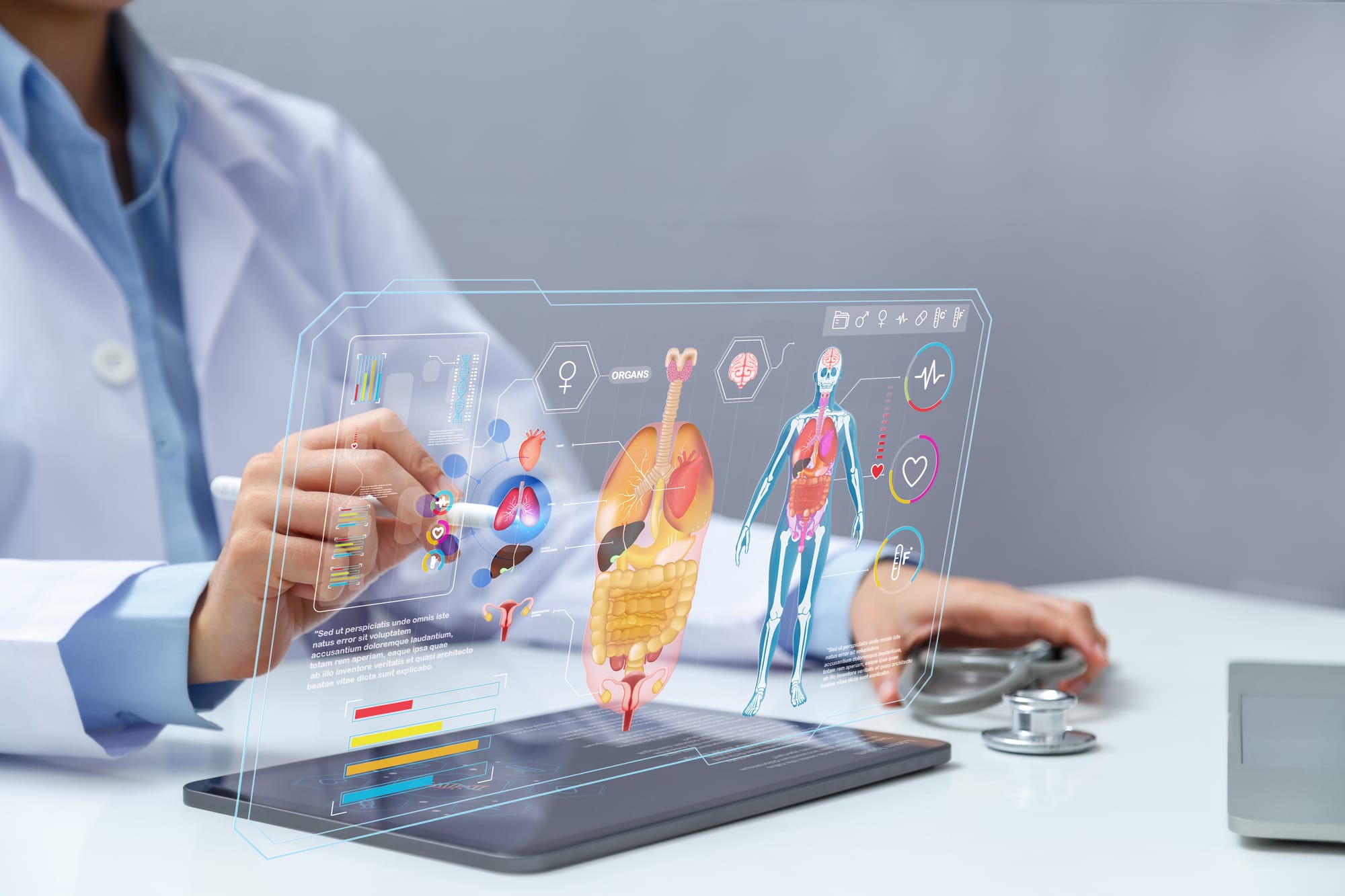THE RISE OF ARTIFICAL INTELLIGENCE IN HEALTHCARE

The Rise of Artificial Intelligence in Healthcare
The integration of artificial intelligence (AI) into healthcare has marked a transformative shift in how medical care is administered globally. With the ability to process and interpret vast amounts of data at unprecedented speeds, AI is increasingly critical in diagnosing diseases, predicting outcomes, personalizing patient treatment plans, and improving healthcare administration. These advancements are not just enhancing the efficacy of treatments but are also making healthcare more accessible and efficient.
Improving Diagnostic Accuracy
One of the most significant impacts of AI in healthcare is its potential to improve diagnostic accuracy. Machine learning algorithms can analyze complex medical data rapidly, which helps in identifying disease patterns that are imperceptible to the human eye. For example, AI systems in radiology can detect subtle changes in imaging that predict the early presence of diseases like cancer, often much earlier than traditional methods. This early detection is crucial in diseases where early intervention can dramatically improve outcomes.
AI in Drug Discovery and Development
The pharmaceutical industry benefits immensely from AI in speeding up drug discovery and development. AI algorithms can predict how different chemical compounds will react to each other and simulate potential outcomes without the need for physical experiments initially. This ability not only speeds up the process but also makes it cost-effective, as it reduces the need for early-stage trials and errors. AI-driven models have been pivotal during the recent global health challenges, such as the COVID-19 pandemic, in which they were used to predict protein structures and develop vaccines in record time.
Personalized Medicine
AI's ability to analyze data from multiple sources, including genetic information, allows for more personalized medicine. By understanding how certain genes may affect health conditions, AI can help tailor treatments to individual patients. This approach is particularly effective in managing chronic diseases such as diabetes and heart disease, where AI tools can analyze data from wearable devices to predict patient trends and suggest modifications in real-time.
Enhancing Patient Care via Robotics
Robotic technology, enhanced by AI, is being used in a variety of ways to improve patient care. Surgical robots, equipped with AI, can perform intricate procedures with precision beyond human capability. These robots can minimize surgical errors and reduce recovery time for patients by ensuring less invasive operations. Furthermore, AI-driven robotics is also being deployed in rehabilitation centers to assist with therapy and training sessions, providing consistent support and adapting to the patient’s progress.
Streamlining Healthcare Administration
AI dramatically streamlines administrative tasks in healthcare settings, thus freeing up valuable time for clinical staff to focus more on patient care. From managing medical records to automating billing processes, AI systems reduce bureaucratic overhead and potential human errors. AI-powered chatbots and virtual health assistants provide 24/7 communication channels, allowing patients to inquire about their health issues, schedule appointments, and even receive preliminary health assessments.
- Predictive Healthcare:
AI systems use historical data and machine learning to predict future health events, which can be crucial for preventive medicine. By analyzing trends and outcomes, healthcare providers can intervene earlier and potentially prevent hospitalizations.
- Enhanced Imaging Analysis:
Innovations in AI-powered imaging techniques, such as MRI and CT scans, provide clearer, more accurate readings that help in precise diagnosis and treatments.
- Remote Patient Monitoring:
AI is integral in telemedicine and remote patient monitoring. Systems equipped with AI tools can monitor patient vitals and send alerts if anomalies are detected, promoting timely medical responses.
Challenges and Ethical Considerations
Despite its benefits, the rise of AI in healthcare is not without challenges. Data privacy is a significant concern, as AI systems rely on vast amounts of data which are susceptible to breaches. Additionally, there are ethical considerations regarding the reliance on AI for critical healthcare decisions. There is an ongoing debate on the extent to which AI should play a role in patient care, especially in critical decision-making processes, which traditionally rely on human judgment.
Future Prospects
As AI continues to evolve, its potential in healthcare seems boundless. Continuous advancements in AI technology promise even more innovative applications in the future. For instance, AI is expected to be pivotal in genomic medicine, providing insights that could lead to breakthroughs in understanding complex diseases. Another promising area is the use of AI in mental health to monitor patterns and behaviors that could help in early detection and treatment of mental illnesses.
In conclusion, artificial intelligence is revolutionizing the healthcare industry by enhancing diagnostic accuracy, streamlining operations, and personalizing patient care. While there are challenges and ethical concerns that need to be addressed, the benefits offered by AI make it a crucial element in the future of healthcare. As technology advances, it is vital for policymakers, practitioners, and the public to engage in the ongoing dialogue on how to best integrate AI into healthcare practices responsibly and ethically.